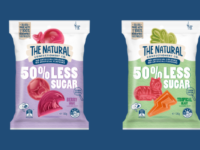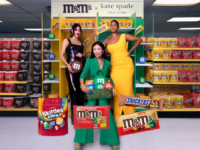The potential purchase of Kellanova by Mars has received endorsement from multiple analysts who see logic and synergies in combining the two businesses.
GlobalData MD Neil Saunders says the deal would allow Mars to push more heavily into the savoury snacks category – a market it currently has virtually no presence.
He described the potential bid – news of which broke yesterday – as having “significant logic”.
“Savoury snacks sales are growing at a faster clip than confectionery, where Mars currently predominates,” Saunders explains. “Moreover, with a 13.3 per cent share of the worldwide confectionery market, it will become increasingly difficult for Mars to eke out further gains over the years ahead. As such the business needs to diversify, and acquiring Kellanova would allow Mars to do this in a big way.”
DA Davidson analyst Brian Holland echoed Saunders’ view: “Deal logic, as we envision it, makes sense,” he wrote in a client note. “At its most simplistic, we presume Mars values [Kellanova’s] geographic whitespace and comparatively attractive valuation.”
Chicago, Illinois-based Kellanova is the owner of brands such as Pringles, Cheez-It and Pop-Tarts. The company currently makes its products in 21 countries and markets them in more than 180 countries.
Kellanova has a market value of about US$27 billion including debt, and its shares have increased about 20 per cent since its separation from WK Kellogg last year, according to Reuters.
Saunders says Kellanova also complements Mars in terms of geographical footprint and the combined company could benefit from improved distribution of products, including some consolidation and synergistic savings.
“The main challenge of the deal will be making the finances work. While Mars can afford such a deal and has an ownership structure that will facilitate getting the transaction over the line, a price tag pushing $25 to $30 billion makes generating a satisfactory return extremely challenging.”
He adds that while Kellanova has a strong portfolio of brands, many of its products are mature and recent growth has been less than impressive as consumers cut back. “Admittedly, with a 2 per cent share of the worldwide savoury snacks market there is headroom for growth, but this will likely require innovation and new product development rather than simply pushing existing brands more heavily.
“The bottom line is that other than enlarging the company, there are no easy mechanisms for generating a strong return on this deal. Mars would need to put in significant effort to make the acquisition of Kellanova pay off. The question Mars needs to ask, very carefully, is whether it would be biting off more than it could chew,” Saunders concluded.
Robert Moskow, an analyst at TD Cowen, said Kellanova’s K portfolio of popular snack brands would fit well with Mars’ and help it expand scale in international markets.
US packaged food companies including Kraft Heinz, Mondelez and Hershey have taken a hit on their top lines as customers try to save money for essential purchases in an era of rising costs and are turning to cheaper, private-label alternatives.
“At times like this when growth slows, balance sheets are relatively clean, and valuations dip, the market leaders in food tend to look more closely at big combinations to drive cost synergies,” Moskow told Reuters.

















